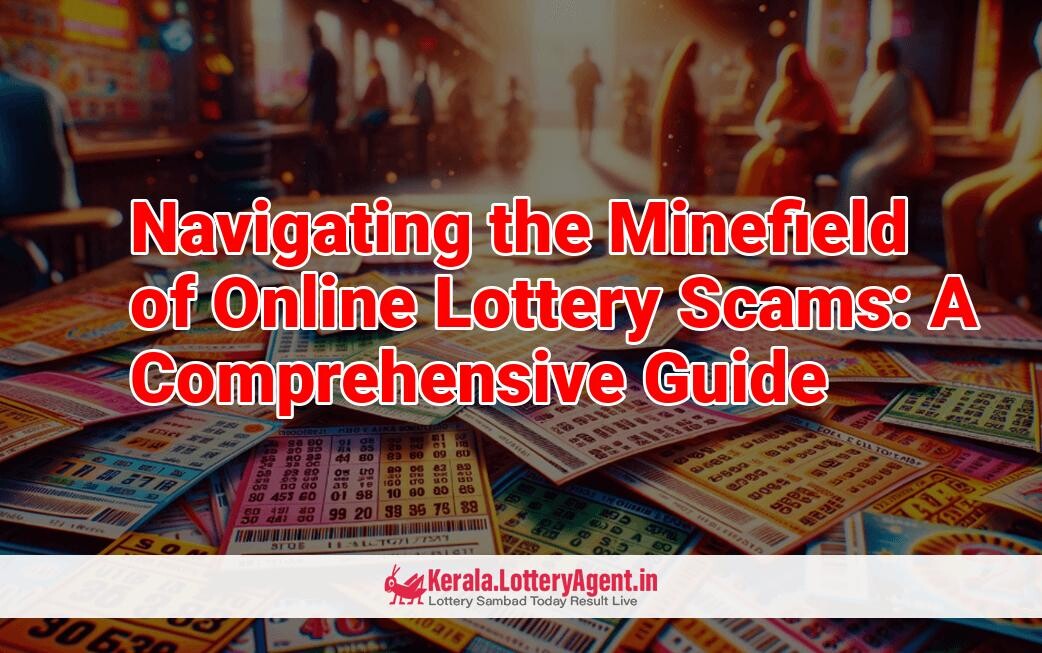
In today’s digital age, numerous individuals test their luck in online lotteries with the hopeful prospect of a significant financial windfall. However, lurking among legitimate opportunities are pernicious online lottery scams designed to extract money or personal data from unwitting victims. These scammers exploit the lotto system by promising substantial rewards and employing deceptive practices to access bank accounts or coax victims into transferring funds directly to them. Sometimes, they set bizarre preconditions that need to be met before supposedly releasing prize money, intensifying the ruse.
For those who frequently indulge in online lottery games, it is paramount to stay vigilant against potential scams. This article aims to arm lottery enthusiasts with critical information and strategies to shield themselves from these fraudulent schemes. We will delve deep into the online lottery scam landscape, unpacking red flags and offering advice on how to sidestep these fraudulent traps.
Every player must adhere to a cardinal rule: if you have not purchased a ticket, you cannot claim a prize. It is a clear indicator that someone may be trying to deceive you if you haven’t actually participated in the lottery they’re referencing. Many players are familiar with prominent lotteries such as the US Powerball and might even play occasionally. However, if you missed buying tickets for a particular draw, it’s likely you’ve become the target of a scam rather than a fortuitous winner.
Legitimate lotteries never require winners to pay upfront to claim their prizes. It’s a common scamming technique, reminiscent of the infamous Nigerian email frauds. Credible online lottery outlets will never solicit money to release rewards. The outdated tactic of sending counterfeit checks still poses a risk. Scammers might send you a prize check to deposit and then request you wire back a portion of the winnings, only for you to later discover the check was a forgery, with no chances of the bank covering the fraud-induced losses.
To combat check fraud, scrutinize the email address from which you are receiving prize notifications. Official lottery emails always emanate from a legitimate domain. Be wary of similar but not identical domains, typographical errors, and unprofessional tones in the messages, as these are sure signs of scam attempts.
Players should purchase their lottery tickets from reputable providers or official lottery websites. This diminishes the risk of fraudulent actors intercepting your prize. Several reliable platforms exist, such as Lotto Agent and LottoSmile, where players can buy tickets for various national and international lotteries.
Recognizing the tactics used by lottery scammers is the first step in protection. Scammers may reach out via direct mail, email, phone, social media, and text messages, fabricating scenarios where the victim has won a prize that requires an advance fee to claim. These include tricks like awarding nonexistent international or government lottery winnings, and even impersonating legitimate lottery websites to steal sensitive personal information.
If you fall prey to a scam, reporting it to the respective authorities, such as a cybercrime branch or international bodies like econsumer.gov, could help in fund recovery, though most victims face challenges in this endeavor. An informed understanding of these scams, together with swift reporting, forms the best defense.
Not all stories end with the scammer emerging victorious. There have been instances where frauds have been unveiled and justice served, as evidenced by cases in Canada and China where fraudsters were caught and penalized, and the true winners compensated.
While lottery itself is not a scam when provided by licensed organizations, the existence of online lottery scams necessitates a cautious approach to every win notification. By exercising caution and verifying all lottery communications through official channels, potential victims can avoid these criminal schemes, safeguard their financial security, and continue to enjoy the thrill of online lottery in safety.











